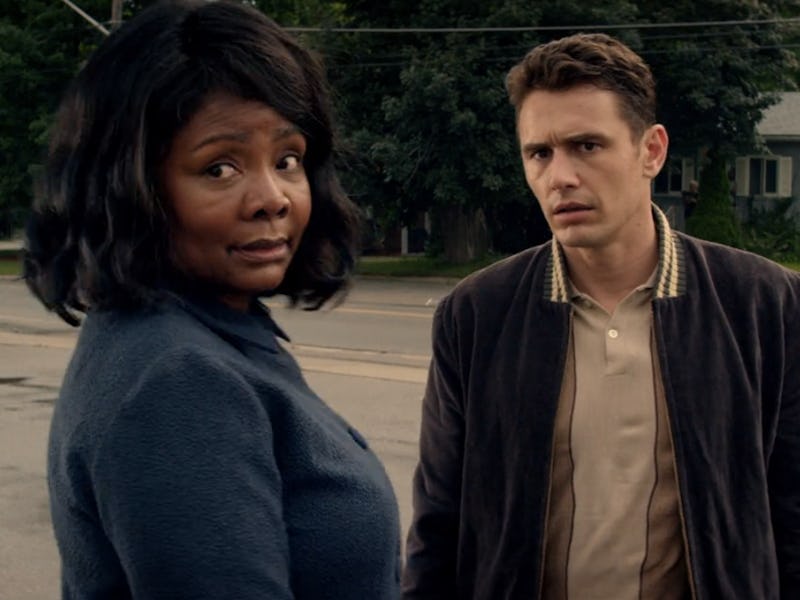James Franco and '11.22.63' Do Responsible Time-Travel Thing, Confront Racism
The freewheeling Hulu drama doesn't put racial politics front and center, but it also doesn't whitewash the past.

“Other Voices, Other Rooms,” the third episode of 11.22.63, borrows its name from the Truman Capote novel exploring the decadence and deterioration of life in the American South. The shoe fits. The episode sets the stage for Jake’s big intervention with a rushed succession of explanatory scenes that bump along in a frenzy of explication. What’s impressive, given the high concept, is that the show takes a few quiet moments to take in the ugliness of Cold War America and the horror of Southern cultural mores around race.
There was no way a show created in the midst of the Black Lives Matter campaign and set in the middle of the Civil Rights Movement was going to avoid tackling race. In a sense, that inevitability was the key source of foreboding. Would the show totally screw it up and make an ass out of all concerned? As it turns out, no. The show takes the time to be thoughtful, even as the countdown to the fatal gunshot continues.
Jake’s unique position as a tolerant white man from the East Coast — a Connecticut Yankee more or less — lets us draw direct comparisons between old and modern attitudes, without getting mired in the ignorance that continues to breed injustice. Bill, Jake’s new sidekick, expresses his horror at the prospect at living in a “mixed-race” neighborhood and white people avoid that unvisitable part of the city known as “Niggertown.” War veterans, like the guy providing surveillance equipment for Jake to spy on Lee Harvey Oswald, are pissed that the “Japs” have spearheaded the growing electronics industry, even after America “bombed them to shit.” Jake’s new landlord sums up his take on race in a single statement: “I ain’t got a thing in the world against niggers. It’s God who cursed them of their position, not me.”
Racism is part of the landscape. Injustice is the water Jake must swim in.
The era’s casual racism is most apparent, however, in the scenes involving Miss Mimi, the show’s first black character since Jake’s ex-wife in the pilot.
Beginning his new life in Jodie, Texas — halfway between Dallas and Fort Worth, where he’ll be shuttling back and forth to complete his mission — Jake gets a job teaching literature at the local high school, where Miss Mimi is the secretary. She’s introduced while Jake is locked in a discussion with the sneakily progressive school principal Deke Simmons about whether Catcher in the Rye will ever become a high school staple; calling Miss Mimi in, Deke casually mentions that Jake has just provided an answer to “her literary question.” It’s a very brief but significant moment — here’s a black character who has obviously engaged in intellectual discussions with her white superior — but equally telling is the speed at which the moment dissipates. Miss Mimi smiles politely but doesn’t engage. It’s simply, and heartbreakingly, just not her place.
This quiet dignity is what gets her through a later moment where Jake offers to pour her a cup of coffee and thereby shocks everyone around them into silence. Miss Mimi politely declines. That’s just something you just don’t do in Jodie, Texas in 1962.
Jakes rolls uneasily with these moments of casual racism but eventually hits a breaking point when he encounters a worn-down Miss Mimi after she’s just walked a mile to a gas station, only to be refused service by a violently racist attendant. Jake isn’t much of a hero — we still don’t know much about him, three episodes in — but he is at least principled; after shoving the attendant into the dirt, he fills up a gas can for Miss Mimi and throws his cash on the ground.
It’s a surprisingly moving scene, one that 11.22.63 should attempt to replicate. The show has a tendency to feel excessively narrative-driven and breezy — which is inevitable, given how complicated the history surrounding the JFK assassination is — but quiet moments like this, which focus less on the action than on who the action is happening to, make watching it feel worthwhile.